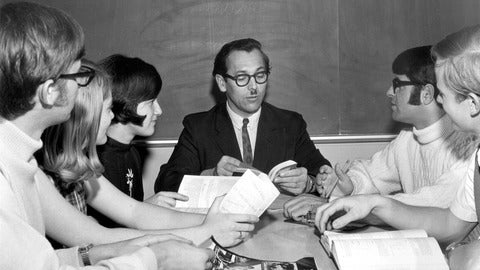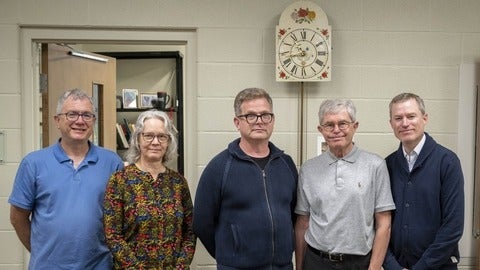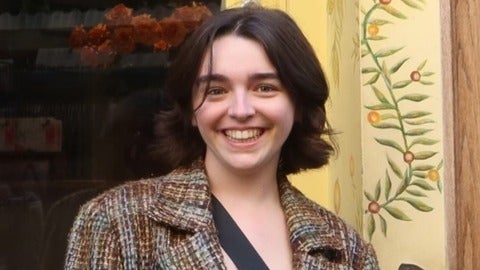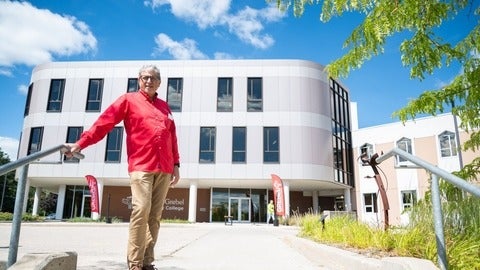The College's Commitment to Curiosity and Creativity in Community
At Grebel, excellence in research and creativity is central to our mission and identity. Our support for research reflects the vision of founding president Winfield Fretz that Grebel students and faculty would be fully embedded in the university and “compete in intellectual discourse and research with any person on the university faculty or other colleges.” This vision continues to guide us today. Our faculty are not only educators but also active researchers, composers, performers, and advocates who contribute to multiple scholarly disciplines and take those conversations beyond the College into the community.









